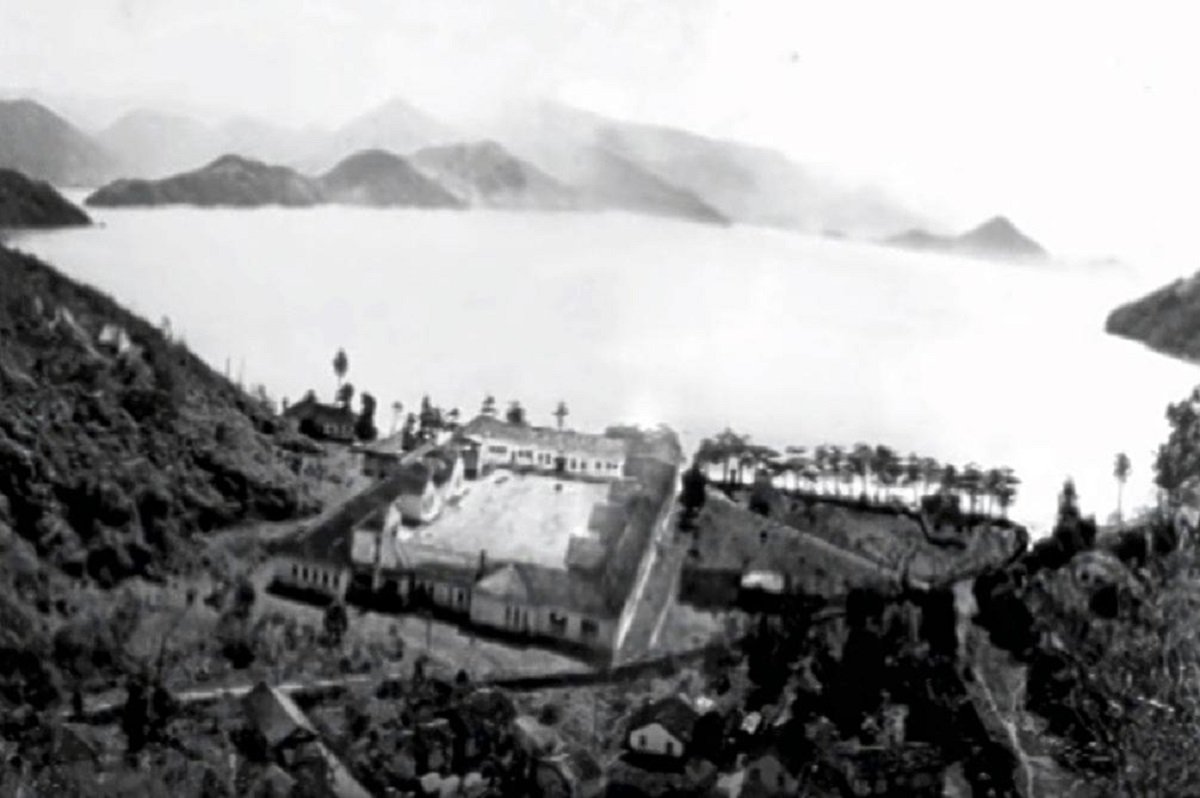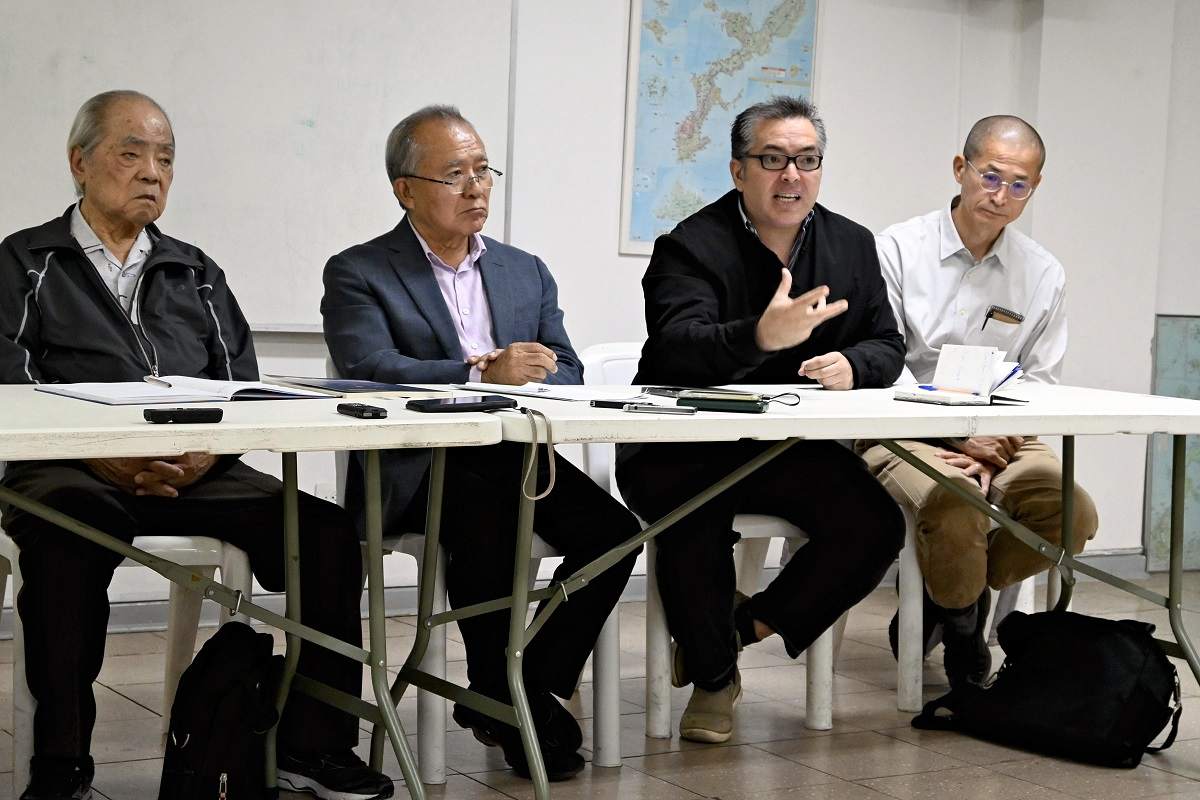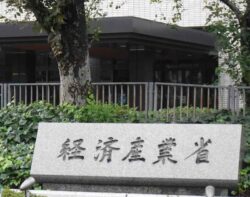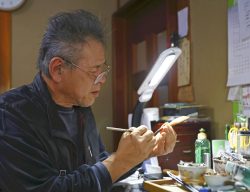
A scene from “Yami no Ichinichi” (A dark day), directed by Mario Okuhara, shows Anchieta Island Prison off the coast of the state of Sao Paulo, Brazil, where Japanese people were imprisoned for about two years starting in 1946.
17:26 JST, May 23, 2024
RIO DE JANEIRO — The Brazilian Amnesty Commission plans to discuss whether to apologize for human rights violations in the internment of Japanese immigrants and people of Japanese descent after World War II, it has been learned. The issue will be considered on July 25.

Enea Almeida
Enea Almeida, chairperson of the government advisory body, said in an online interview with The Yomiuri Shimbun that the commission is expected to apologize on behalf of the government.
An estimated 2.7 million people of Japanese descent currently live in Brazil, which is home to the world’s largest community of those with Japanese heritage outside Japan.
If realized, the apology would be the first by the Brazilian government. It would also be an important milestone in restoring the dignity of those who were unjustly treated before the 80th anniversary of the end of World War II next year.
“Many people should know about the cruel events in which [Japanese immigrants and their descendants] were persecuted by the Brazilian state for the simple reason of being Japanese, and the country should guarantee that the same mistake will never be repeated,” Almeida said.
The commission, under the Human Rights and Ctizenship Ministry, has the authority to determine whether the government should pay compensation for human rights violations that occurred under the influence of the military from 1946.
A majority vote at a meeting attended by at least nine commissioners is required for the government to make reparations, according to Almeida.
It is believed the apology would be for the imprisonment of 172 Japanese immigrants and descendants by Brazilian authorities at the Anchieta Island Prison off the coast of Sao Paulo for about two years beginning in 1946.
According to documents submitted to the government’s commission on human rights violations, those from the Japanese community were mistreated and tortured in the prison. Some were reportedly imprisoned for refusing to step on a picture of the Japanese emperor or a Japanese flag in an exercise meant to test their loyalty.
Brazil severed diplomatic ties with Japan when it joined the Allies in World War II. People of Japanese descent were ordered to evacuate the city of Santos during the war.
In 2015, Japanese-Brazilian Mario Okuhara, 49, who directed a documentary about the persecution of those of Japanese heritage, asked for an apology without compensation to restore the victims’ dignity.
“If [the Brazilian government] apologizes, it will restore the dignity of our ancestors and be a great help to their descendants who have settled into Brazilian society,” said Akira Miyagi, a member of the Brazilian Okinawa Kenjinkai. He has helped pushed for an apology from the Brazilian government.
The Amnesty Committee rejected the request for apology in November 2021 but decided to reconsider it after the change of government in January last year.
Top Articles in World
-

Israeli Ambassador to Japan Speaks about Japan’s Role in the Reconstruction of Gaza
-

Videos Plagiarized, Reposted with False Subtitles Claiming ‘Ryukyu Belongs to China’; Anti-China False Information Also Posted in Japan
-

Nepal Bus Crash Kills 19 People, Injures 25 Including One Japanese National
-

South Korea Tightens Rules on Foreigners Buying Homes in Seoul Metro Area
-

Ukrainian Ambassador Closely Watching Japan’s Revision of Defense Export Rules, Hopes for Future Arms Support
JN ACCESS RANKING
-

Producer Behind Pop Group XG Arrested for Cocaine Possession
-

Japan PM Takaichi’s Cabinet Resigns en Masse
-

Man Infected with Measles Reportedly Dined at Restaurant in Tokyo Station
-

Israeli Ambassador to Japan Speaks about Japan’s Role in the Reconstruction of Gaza
-

Videos Plagiarized, Reposted with False Subtitles Claiming ‘Ryukyu Belongs to China’; Anti-China False Information Also Posted in Japan

























